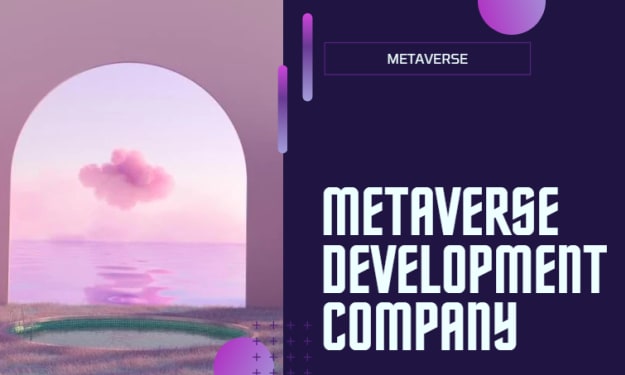Tina Adams, an independent filmmaker, explains how creativity breeds creativity.
Tina Adams is sharing her work experience and insights with fellow indie filmmakers and anybody interested in filmmaking today.

Her acting credentials include work with famous filmmaker Juraj Herz. She is also a director, having made short films such as Trick and Cheat and feature films such as My Wacko Parents and Hotel Limbo.
Tina spoke with us about how she got the finest education a filmmaker could get and why she's prepared to take on Netflix's industry to support small films.
Tell us about your acting experience. How did you get started on your journey?
It was particularly challenging. I had no idea where to begin as a youngster or a teenager. I spent my entire life as a stand-up comic, arranging events and theatrical acts throughout my school years, but I always saw myself on the big screen. I wanted to be in movies, but I didn't know how to get there at the time. So, for me, it was a mysterious and unattainable universe.
What was the one film that inspired you to pursue a career in acting?
It was a silent film titled "Go for Ice Cream." The story is about a girl who goes to buy ice cream, but her ice cream falls apart every time she attempts to leave the store. She keeps trying to save her ice cream but ends up failing over and over again. It was thoughtful as well as comical. I aspired to be just like that beautiful, lovely, and hilarious woman. I hoped that I would make the audience laugh as much as she did one day.
Who are your current sources of inspiration?
Kate McKinnon and Kaley Cuoco are two of my favorite actors right now. They are like beautiful fireworks, lively and sparkling like the best champagne, and adventurous in every single one of their performances.
Please tell us about your feature film Hotel Limbo.
We spent nearly three years filming the movie. I wanted to capture that precise moment when the autumn goes wild, and nature goes on a berserk painting spree with all the stunning yellows, oranges, and browns.
Totally worth it.
The cinematography was breathtaking. My Director of Photography (DOP), Wesley Mrozinski, was present for a lot of it; he got the award for best cinematography for his work on the film.
In addition, I had the pleasure of working with A-list actresses Liliana Komorowska and Lucie Vondrackova. Watching them on the big screen was amazing, and I really appreciated their talent.
Did you find it tough to go between acting and directing?
I have to admit that my first day on set as a director caused me to be sleepless the night before. But, despite feeling super nervous, everything changed once we began filming the first scene. I said to myself, "This is exactly where I need to be; this is where I belong, this is my reason to be." I then asked myself, "What took me so long to get a seat in the directors' chair?"
How did you find working on Pasáz? What did you take away from your experience?
Jurij Herz was an absolute film wizard. I enjoyed working with him, and Pasáz was our first project together.
When I asked him how he came up with the idea for the film, he narrated to me a story about his then-wife, Teresa Pokorn-Herz. She enjoyed skiing in the Alps. Yet, Juraj, a holocaust survivor, despised the mountains since Hitler used to keep his chalet there, near Munich. So one time, while on a ski trip with his wife, he covered the hotel room's window with furniture and refused to leave the room to express his displeasure. But because of his boredom in his contrived captivity, he ended up writing Pasáz's.
In the film, the main character is trapped in a tunnel in a nonsensical universe, and he cannot get out.
Explain your creative process to us.
The best part of making a film is writing the screenplay.
Firstly, I prefer to give my characters real names. Names that have a life of their own, with both first and last names that mean something. As soon as I name them, I begin describing them. I determine things like how old they are, what their upbringing was like, and what sort of relationship they have with other characters. Then I begin to build up their personalities and give them a sense of autonomy, and, to my surprise, they begin to do anything they desire.
I'm only a writer who is documenting their will.
It always takes me by surprise.
With so much creative production shifting to streaming services, do you believe filmmakers have enough leeway to present the stories they think are essential?
I'm really grateful for the emergence of modern technology that allows artists and filmmakers to bring our work into everyone's lives. With phones, my films can be watched worldwide. All of this implies that there is an increasing number of exhibits available. Platforms provide us with a louder and stronger voice, which means freedom to me.
What has been your most egregious failure?
I was just 25 years old, gorgeous, and daring. I hosted Games Without Frontiers, a Eurovision TV show broadcast in 25 countries, including Canada. I was the first person shown on a communist Czechoslovakia TV screen, laughing and smiling and casually speaking to the audience.
This was a win, but letting the hostile critics get into my head, that was the failure. But I learnt from it.
Of course, the naysayers and their condemnation showered down on my head. It gave me the idea that I had become a failure, which depressed me for a long time. However, I eventually fought off this belief and became proud of my accomplishment.
Today, people still stop me on the street, but they tell me how much they enjoyed that show and my role in ushering in a new age. It makes me feel a sweet sense of accomplishment and appreciation for the job I accomplished.
What is the most meaningful thing you want your audience to feel when watching your films?
I don't believe art is a tool for instruction; instead, I believe it is a means for happiness.
But, on the other hand, I spend a lot of time pondering the deeper meanings of the scenes I'm working on. Even though art can mean totally different things to different people, for the viewer, during that moment of deep inspiration is a moment of learning.
Take, for example, my latest piece, "The Princess On The Pea." I'm constantly wondering to myself, where does the princess come from?
Why does a stranger knocking at the door seeking refuge get bombarded by a battery of questions? Why do we put those people through hardship before accepting them?
As in my film, the princess first arrives as a girl and eventually becomes crowned as a princess.
So this begs the question, "What are we doing with all of the newcomers to our own countries?" With all the immigrants being questioned and grilled about their applications, what are we doing? Is there possibly a better way to ensure that they are not lying on their applications?
These deeper underlying questions and ideas make my work so much more meaningful.
About the Creator
7 Art Distribution
Over 20 years, Seven Art Distribution has supported Independent Filmmakers by providing them a channel to bring their art to screens all around the World.






Comments
There are no comments for this story
Be the first to respond and start the conversation.